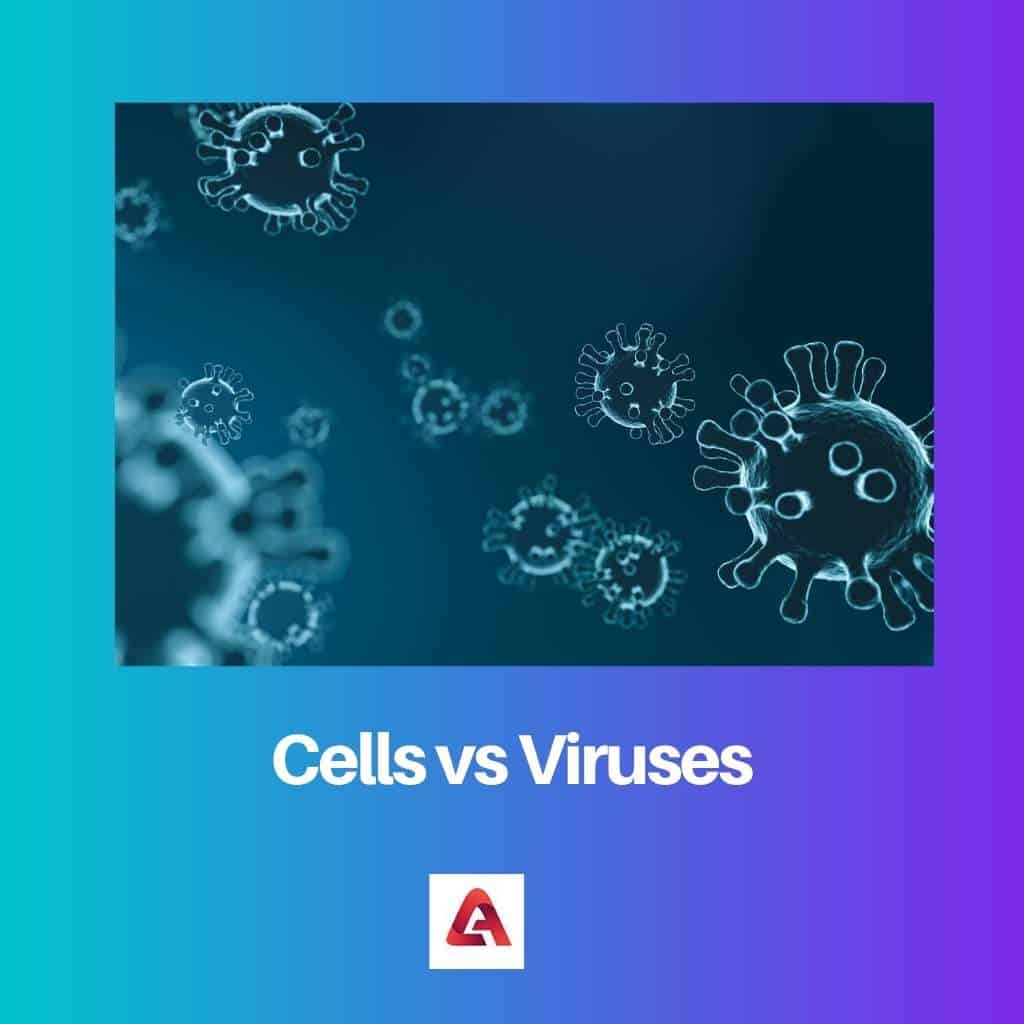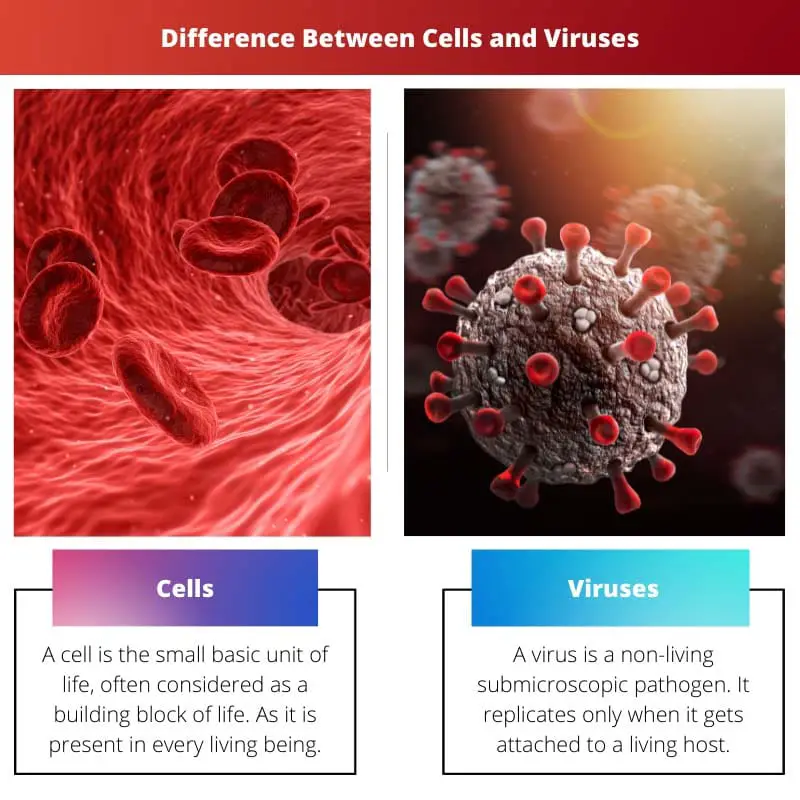A world that exists which cannot be seen with the naked eye. Seems pretty fascinating! But, there are many small tiny organisms in your surrounding.
Key Takeaways
- Cells are living organisms, while viruses cannot survive independently.
- Cells reproduce through division, but viruses need host cells to replicate.
- Cells have a complete set of genetic material, whereas viruses possess only partial genetic information.
Cells vs Viruses
The difference between Cells and Viruses is that a cell is a significant structural and functional unit of all living organisms. Instead, a virus is an infectious agent that is considered non-living. The cell is a living component, unlike a virus, which is a parasite.

The cell is a significant component of every living organism. Besides, it is considered a basic structural, functional, and biological unit and the smallest unit of life.
A virus is a small infectious agent, considered a pathogen, as it is non-living. But attach themselves to cells and rapidly replicates the original virus.
Comparison Table
| Parameters of Comparison | Cells | Viruses |
|---|---|---|
| Referred | Cells are the smallest unit of life. | The virus is a submicroscopic pathogen. |
| Form | It is present in a living form. | The virus can be present in a living or non-living. |
| Cell wall | The cell wall is present. | In contrast, the Cell wall is absent in a virus. |
| Survival | A cell can survive on its own. | Without a host, a virus cannot survive. |
| Ribosomes | Ribosomes are present in a cell. | On the other hand, a ribosome is not present in a virus. |
| Reproduction | Cells reproduce through binary fission and mitosis or meiosis. | When a virus replicates, it uses lytic fission to do it. |
What is Cell?
A cell is the small basic unit of life, considered a building block of life as it is present in every living being. It provides structure, functionality, and biological component in a living being.
Broadly divided into two categories; prokaryotic cells and Eukaryotic cells. The difference is based on the nucleus. Eukaryotic cells contain a nucleus, while Prokaryotic don’t.
Cells on an individual level can synthesize their nutrients and other types of molecules, provide energy for themselves and replicate for producing generations.
In multicellular organisms, it exists in groups of cells that perform different functions efficiently. There’s close communication of surrounding cells, thereby performing function together as tissues.

What is Virus?
A virus is a non-living submicroscopic pathogen. It replicates only when it gets attached to a living host. Viruses have their own kingdom as they are special and doesn’t lie under other taxonomic position.
In contrast to cells, it is much smaller. Exist as independent particles called virions. Mostly, it contains either RNA or DNA.
Unlike Cells, they cannot replicate on their own. It needs a living cell to replicate, and the composition is very simple. They are dependent on the host as they cannot synthesize their protein.
Either RNA or DNA, the nucleic acid is the infectious part of the virus. A variety of organisms can be affected by the virus ranging from plants and animals to microorganisms such as bacteria and archaea.

Main Differences Between Cells and Viruses
Cells and viruses are very different from each other. They have different natures and functionality. Although cells are an important component of all living organisms, a virus is a parasite.
- Cells can reproduce on their own, while viruses need a host for replication.
- A virus is submicroscopic, while the cell is microscopical.




